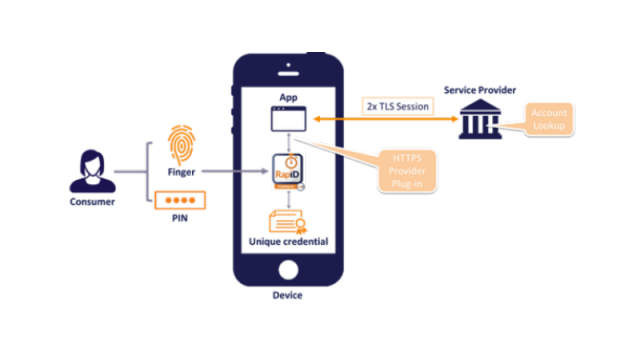
Energy industry is not prepared for cyber attacks
The energy industry is mostly unprepared for cyber-threats, a new study by Tripwire suggests.
The global provider of advanced threat, security and compliance solutions announced these results in a study conducted for it by Dimensional Research. The study looked at cyber-security challenges faced by organizations in the energy sectors, and includes answers from more than 150 IT professionals.

SSuite NoteBook Editor: not just another WordPad replacement
If you’ve tried your share of WordPad replacements then you’ll know they’re usually identikit me-too products with barely any interesting ideas of their own.
SSuite NoteBook Editor is a rare exception which manages to bring something a little more original to the standard text editing feature list.

Don't say Enigma Software's SpyHunter is rubbish or you just might get sued
Technology website BleepingComputer is being sued by Enigma Software (ESG) over a negative review of its SpyHunter antimalware software. In fact, it's not really a review that has caused Enigma Software to start complaining about "false, disparaging, and defamatory statements", but a thread on its forums.
The lawsuit also suggests that BleepingComputer is "driving traffic and sales to Malwarebytes and driving traffic and sales away from ESG" (Bleeping Computer runs an affiliate program involving Malwarebytes) The timing of this is interesting, as it comes at the same time as the European Court of Human Rights ruled that website owners are not responsible for comments posted by readers.

Security solution RapID wants to kill the password
At a time where cyber security is infiltrating the consciousness of consumers and businesses alike, finding the right balance between security and convenience has never been more important.
To that end, digital identity and credentials firm Intercede has launched RapID, a new security solution that delivers password and token free access to cloud services from mobile applications.

Installing apps at the weekend? You're probably using iOS
Companies looking to market to mobile users rely on being able to reach users at the times and places when they're most receptive.
A new report from mobile advertising company AppsFlyer looks at the behavior of app users and how it differs between operating systems and around the world.

Best OnePlus 2 model gets a price cut
To appeal to a wider audience, OnePlus has introduced two versions of its second-generation flagship, called OnePlus 2: a base model, which ships with 16 GB of internal storage and 3 GB of RAM, and a high-end variant, which is equipped with 64 GB of internal storage and 4 GB of RAM. However, with only a small difference in price between the two, there has only been one model worth considering -- the latter.
Few consumers have likely opted to purchase the cheaper OnePlus 2, because the company has just decided to drop it from the lineup. OnePlus now only sells the high-end model, but the good news for consumers on a budget and other prospective shoppers alike is that this version is now cheaper.

India bans Facebook's Free Basics for contravening net neutrality rules
The Telecom Regulatory Authority of India (TRAI) has ruled in favor of net neutrality laws, effectively banning Facebook's beleaguered and controversial Free Basics program. In a win for net neutrality proponents, the telecom regulator ruled against "discriminatory tariffs for data services" saying that internet access should be provided on an equal basis.
Mark Zuckerberg's dream of connecting the entire world to the internet has met with controversy ever since it was first announced because of the way it only provides access to a limited number of websites from select Facebook partners.

US finally gets Sony's Xperia Z5 and Xperia Z5 Compact
As a household name in the smartphone industry, Sony has a modest presence in US. It sells a small number of handsets in the country, and only a couple of those through major wireless carriers. What's more, its latest flagships arrive late, months after hitting other major markets.
Things are no different with Xperia Z5 and Xperia Z5 Compact. The two flagships, which were announced at CES 2015 and released shortly after, are only now making their way to US shores. There is no word of the more upscale Xperia Z5 Premium, however.

Amazon bookstores: It’s the drones, stupid
Remember the motto of the Clinton Presidential campaign back in 1992: "It’s the economy, stupid!" That election was about the economy and Clinton won as a result. Well Amazon.com this week let slip its plan to open 300-400 bookstores in U.S. cities, sending Wall Street analysts into a tizzy because bookstores look to them like a lousy business even for the world’s biggest bookseller. But this isn’t about selling books. This Amazon plan -- if it happens at all -- is about creating bases from which to fly delivery drones.
Delivery drones are to me a stupid idea except in certain rare circumstances like flying prescriptions to people living on remote islands. But Amazon is acting like it actually means it. And if it does mean it, then it’ll need a place from which to fly those drones.

Sidebar Diagnostics is a stylish system monitor for your desktop
Sidebar Diagnostics is a well-designed professional system monitor for Windows Vista and later.
No, we’re not usually interested in this kind of tool, either, but wait -- this is a package you might actually want to use.

Oracle issues an emergency patch to Java for Windows
Security problems are not new to Java, though it is, admittedly, not the only platform that suffers from these problems. Now Oracle has acknowledged a new hole and it is bad enough to issue an out of cycle emergency patch.
With the catchy name of CVE-2016-0603, the security flaw requires the user to access a malicious website and accept the download of Java version 6, 7 or 8 in order to become infected. However, for those who fall for it, the attack will allow for a total compromise of the system.

Majority of IT pros share files via unsecure clouds
Many IT teams all over the world acknowledge the fact that a secure way to store and share files, both internally (within a company) and externally is extremely important. However, many IT teams also lack the proper tools to do so.
Those are the results of a latest survey by Ipswitch, after asking 555 IT professionals across the globe about their file sharing habits.

Don't have TV service? You can watch the Super Bowl on Windows and other devices
We're now counting down the hours to the kickoff of Super Bowl 50, which begins at 6:30PM EST when the Denver Broncos meet with the Carolina Panthers in Santa Clara, California. The fact that the big game is carried by network TV was a problem a few years ago for anyone who had cut the cord, but those days are changing and doing so quickly.
These days you have options that weren't available in those earlier times. In fact, it's not even just the game, but the halftime show and even the commercials, which sometimes become the real star of the game.

Julian Assange can't be allowed to hide behind the skirts of WikiLeaks to avoid answering rape allegations
Like Edward Snowden, Julian Assange is an incredibly divisive character. Just as Snowden is viewed by some as a hero for exposing the activities of the NSA, so Assange is viewed as a hero for exposing -- amongst other things -- the darker side of the US military through WikiLeaks. But both figures are also viewed as villains by those who believe that their whistleblowing has endangered national security.
While Snowden scampered off to Russia to avoid the US legal system, Assange took refuge in the Ecuadorian embassy in London. While it's certainly true that he's a man of interest for the US which ultimately seeks to prosecute him over the activities of WikiLeaks, Assange is actually holed up in the UK to escape extradition to Sweden where he faces questioning over allegations of rape. He has continually used the additional prospect of extradition to the US for WikiLeaks-related questioning as an excuse for not facing the music in Sweden. This is just about as wrong as it's possible to be.

Now the Pirate Bay lets you stream just about anything for free
Legalities aside, there is one problem with content made available through the likes of the Pirate Bay. Whether you use traditional torrents or magnet links, you'll (usually) need to wait for a download to complete before you can enjoy the movie, show, or album of your choice. But not anymore.
A new beta feature for the world-famous torrent site makes it possible to stream videos without the need to download them first. By integrating the Torrents-Time plugin, the Pirate Bay now includes a Stream It option for all video torrents.



